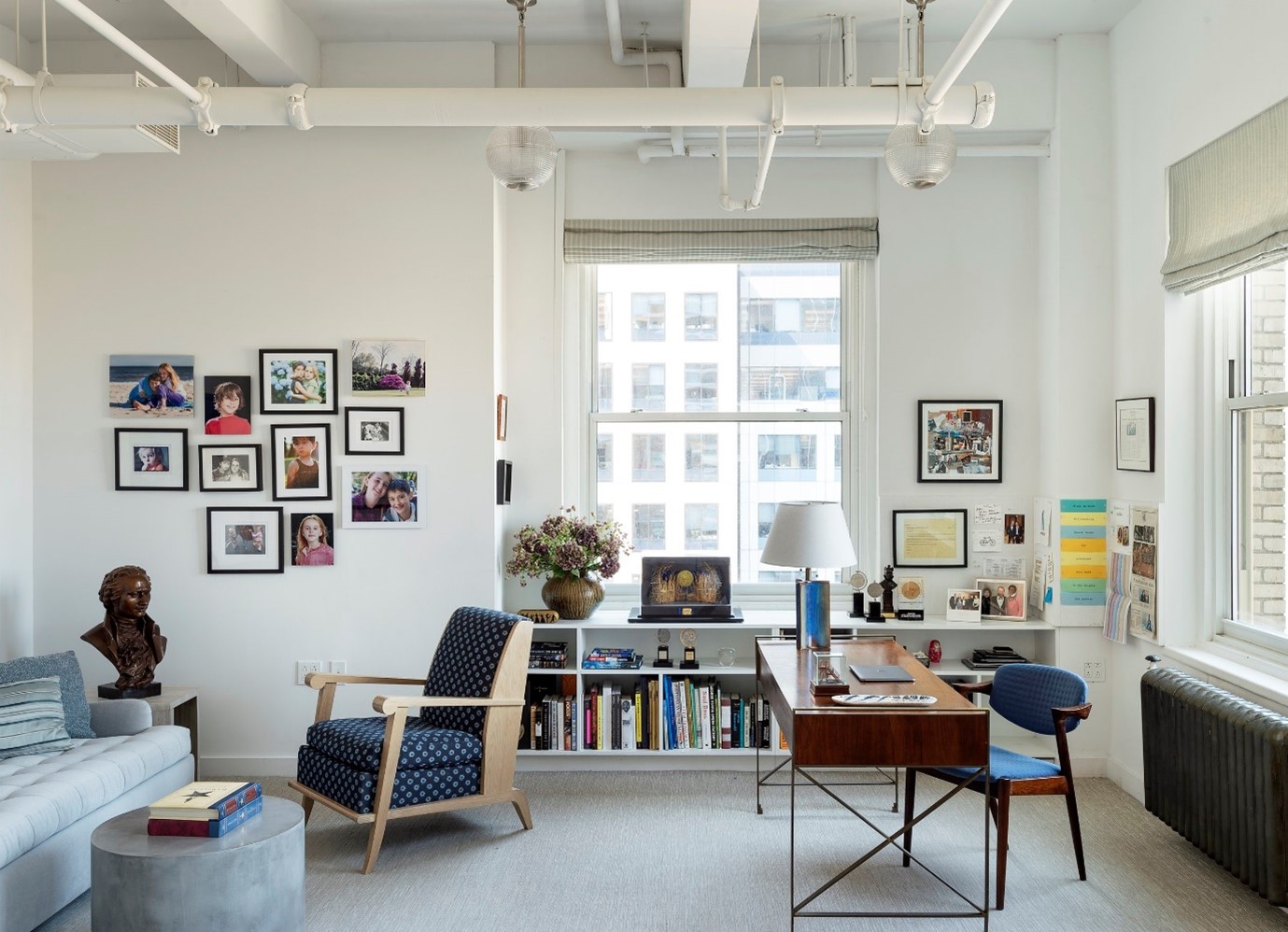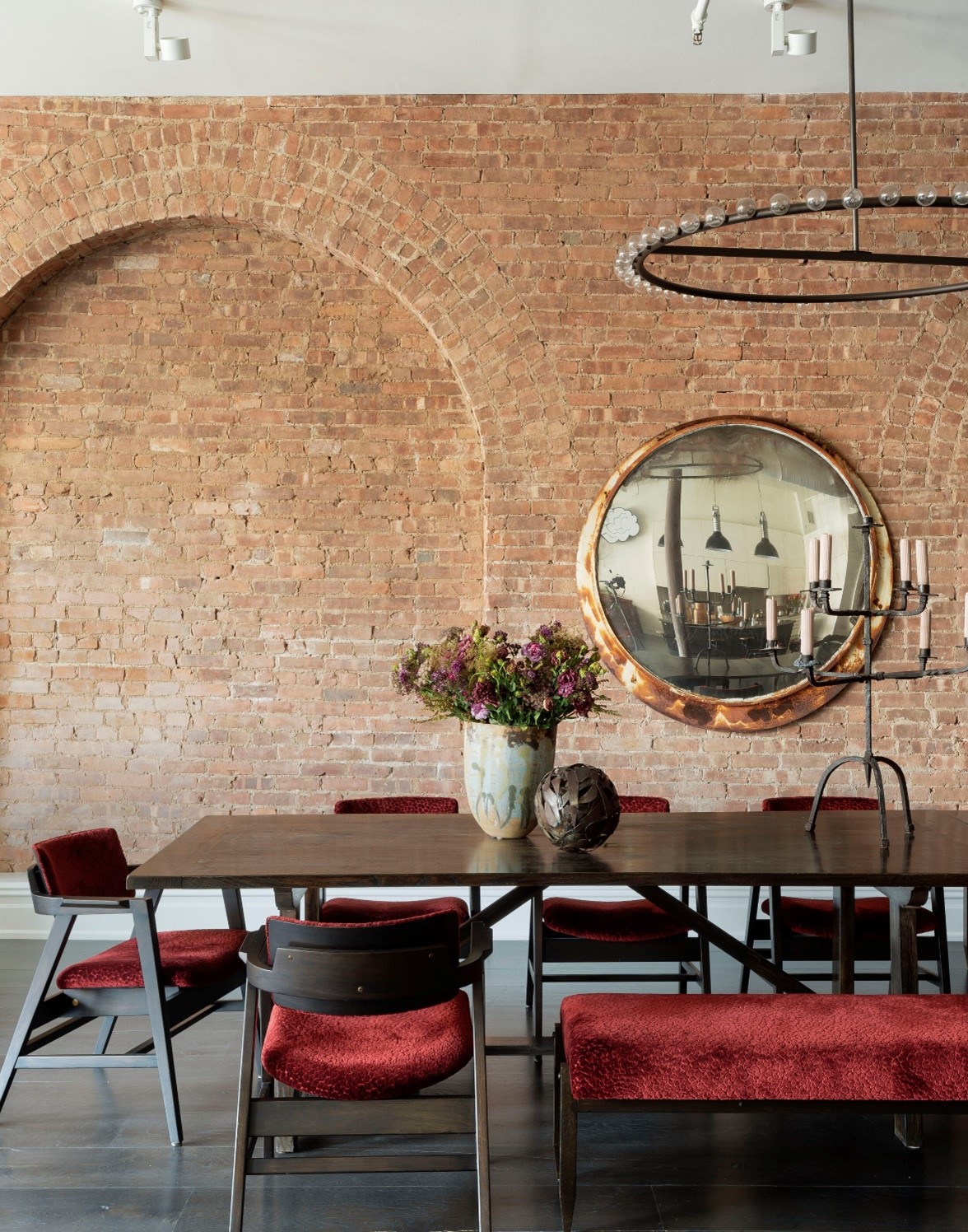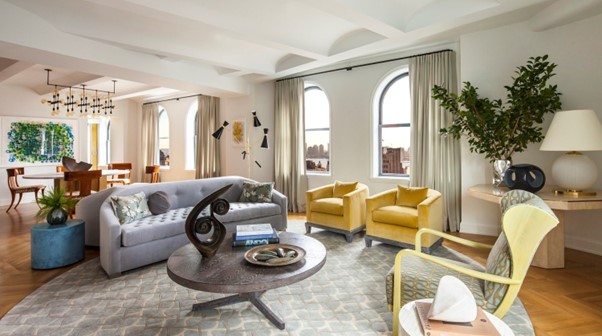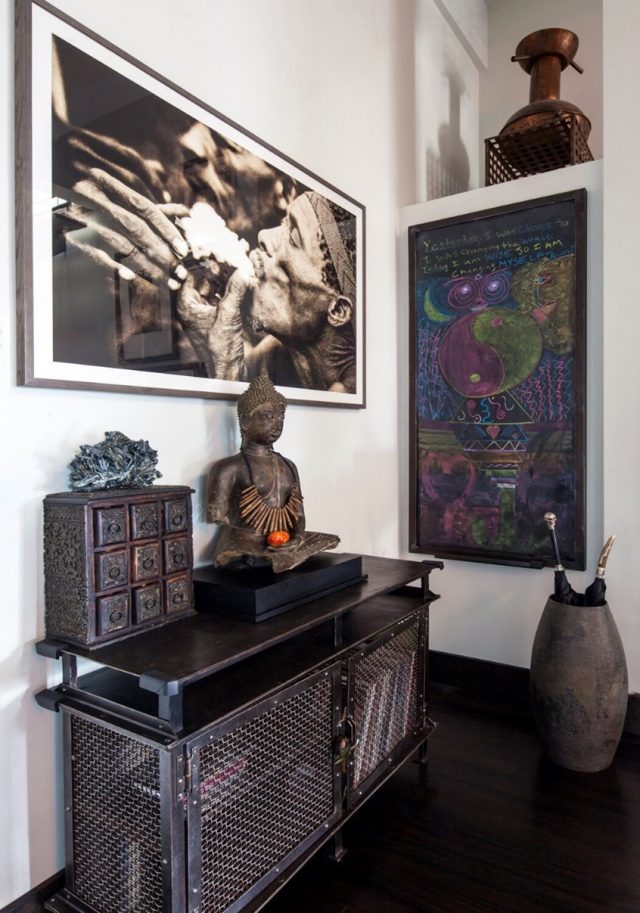Huniford Design Studio is a luxury line of home furnishings, with character and bespoke pieces that accentuate interior design. In the following article, Huniford Design Studio reviews how color and Feng Shui can create a peaceful and harmonious living space.
Many know the ancient Chinese art of Feng Shui simply as a way of arranging furniture to bring good energy or fortune. The “rules” of Feng Shui are designed to optimize the flow of “chi” (or energy) through a space. However, there’s far more to it than simply arranging furniture.
Color plays a significant role in creating a harmonious indoor or outdoor space. According to Feng Shui principles, specific colors or color palettes have an influence on a person’s mood, energy, relationships, fortune, and productivity. Along with the design and cleanliness of a space, the right colors can help to improve wellbeing.
Below, Huniford Design Studio reviews the most common colors used to promote positive energy flow according to Feng Shui principles.
Huniford Design Studio Reviews Positive Feng Shui Colors
In Feng Shui, every color is connected to one of the five elements (wood, fire, earth, metal, and water). In addition, light and dark hues play a role in the way each color channels positive energy throughout a room. In general, these are the colors most commonly used to create a harmonious palette for good chi:
Green
Green is associated with the wood element. It symbolizes growth, renewal, and vitality, and is considered a restful and balancing color that promotes a sense of calm and tranquility. Incorporating green may involve painting walls, using textiles, or adding plants to a room.
Huniford Design Studio reviews that specific shades of green matter as well. Light green represents healing and tranquility, making it ideal for bedrooms or bathrooms. Dark greens are linked to wealth and prosperity, which would work well for enhancing office spaces.
Blue
Blue, especially in a lighter shade, is tied to the water element and signifies tranquility and peace. It helps to reduce stress, creates a calming atmosphere in the home, and is especially useful in bedrooms.
Like dark green, dark blue can also be a wealth-attracting color, mainly because of its connection to water, which in Feng Shui symbolizes money flow. It’s also seen as a color that encourages introspection and self-cultivation, which can indirectly lead to personal growth and success.
 Yellow
Yellow
Tied to the earth element, yellow represents warmth, cheerfulness, nourishment, and positive energy. It promotes communication and stimulates mental activity. This is an ideal choice for areas in the home where lively interactions and high energy are desired, such as the kitchen or living room.
Huniford Design Studio reviews that light yellows can infuse spaces with refreshing, uplifting energy, while deeper hues are associated with comfort and stability.
Red
Red is linked to the fire element and has the power to stimulate, energize, and increase the adrenaline level, making it an effective color for spaces where dynamic interaction is desired. Deep reds can create a sense of luxury and wealth, while brighter reds bring a feeling of excitement and energy.
Huniford Design Studio reviews that red is best incorporated in moderation (for example, via artwork, upholstery, or accents) rather than larger, more overwhelming applications like wall color.
 Orange
Orange
Orange is also related to the earth element and is said to bring enthusiasm, youthfulness, happiness, and energy into a room. It’s known to promote lively conversations and good times, making it a good choice for spaces where people gather, such as the living room or dining area. Its connection to liveliness and creativity also makes it suitable for a home office or child’s playroom.
Purple
Purple relates to the fire element and correlates to abundance, nobility, and spirituality. The use of purple is particularly useful for cultivating a sense of luxury, making it a popular color for rooms aiming to project a high-end aesthetic.
Lighter shades of purple, such as lavender, can create a calming and soothing atmosphere, making them a good choice for areas like bedrooms or meditation spaces.
 Pink
Pink
Huniford Design Studio reviews how pink is also associated with the fire element, but in a gentler fashion that is known to nurture feelings of love and tranquility. It’s frequently linked to romance and is a popular choice for bedrooms or other spaces dedicated to rest and relaxation.
White
Huniford Design Studio reviews how white, linked to the metal element, symbolizes purity and innocence. It can help to clear clutter and obstacles to promote positive energy flow.
White is often used in Feng Shui to create a sense of cleanliness and freshness, making it popular for areas like bathrooms and kitchens. Using a bright, crisp white promotes clarity, while softer off-whites provide a more soothing and calming influence.
Warnings On the Overuse of Colors
Feng Shui warns against the overuse of even the most positive colors. For example, an excess of green might lead to lethargy and stagnation, while blue needs to be used mindfully and in balance with other colors to avoid feelings of sadness or depression. Too much red or orange can also cause one to feel overwhelmed.
Huniford Design Studio reviews that at the heart of Feng Shui is the search for equilibrium. It is not about drenching a room in one color lin ordet to manifest a desired outcome. Rather, it encourages the artful balance of different shades. To maintain balance, pairing different tones or incorporating neutral shades is necessary.
Summary
Using colors to promote positive energy flow requires not only choosing the right colors and shades, but applying them in moderation to ensure that they evenly enrich the environment without overwhelming it. Colors like green, blue, orange, purple, yellow, red, pink, and white can enhance the movement of chi around a home if one chooses their pieces and arrangements wisely.








